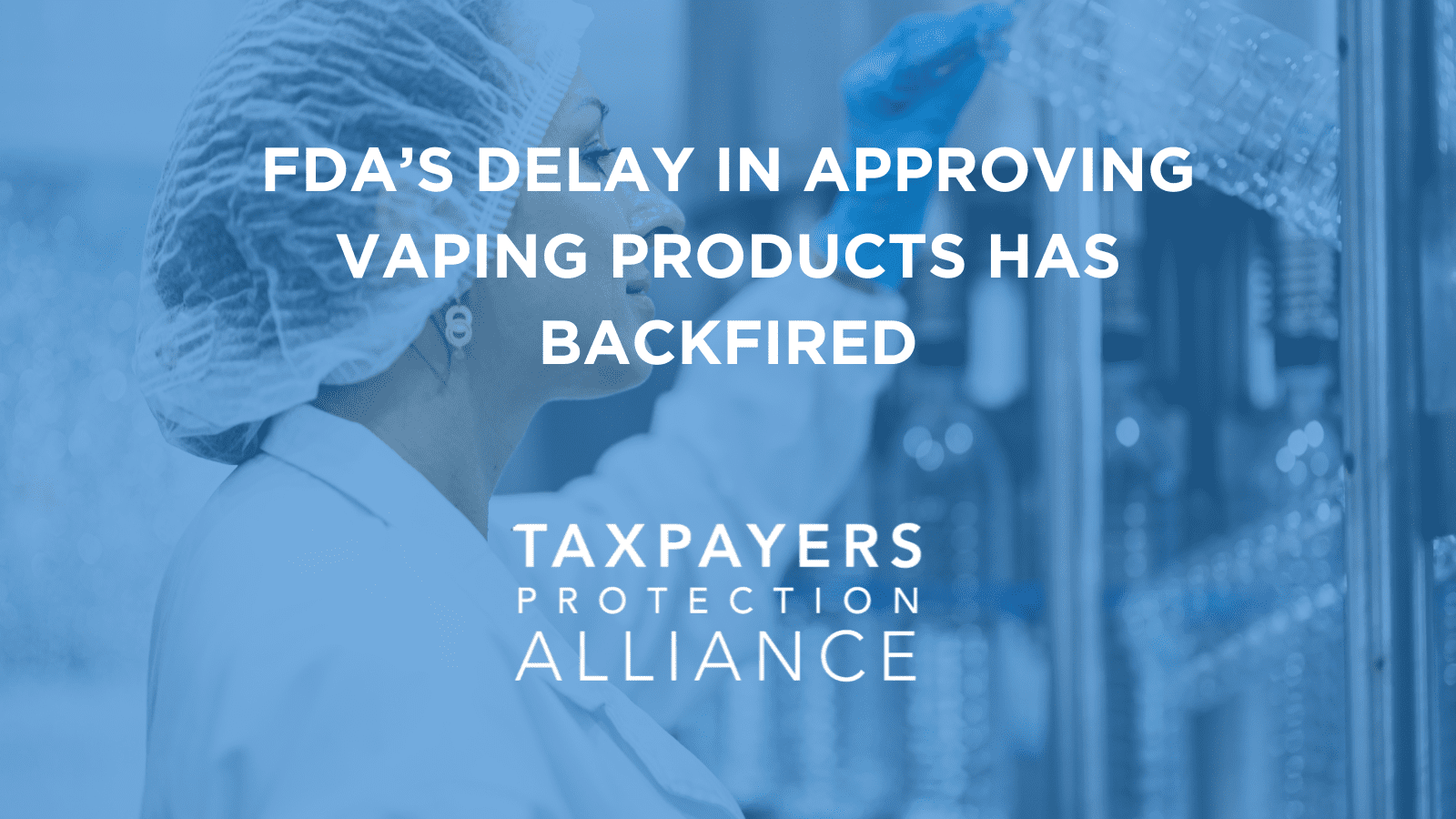
FDA’s Delay in Approving Vaping Products Has Backfired
Christina Smith
July 9, 2025
The lag in the Food and Drug Administration’s (FDA’s) Center for Tobacco Products (CTP) Premarket Tobacco Product Application (PMTA) process has finally come home to roost, and states are taking matters into their own hands. Starting July 1, 2025, vape product manufacturers must certify to the Wisconsin Department of Revenue that their products have been FDA-approved or have submitted a PMTA.
The law aims to keep illicit products off the shelves and out of consumers’ hands, but the issue is that the FDA has been painfully slow in processing and approving PMTAs. As a result, most of the products being sold aren’t currently approved. Consumers, manufacturers, and retailers would benefit from the FDA expediting the approval process and allowing consumers more options to quit cigarettes.
The FDA’s cumbersome approval process has led to such delays that illicit and potentially dangerous products have flooded the market to meet demand. Roughly 86 percent of tobacco harm reduction (THR) products sold in the U.S. are illegal and not FDA-approved.
One major problem with this is that FDA-approved products are easily confused by consumers with unregulated products, and both being sold on retail shelves. Regulated THR products are a far less dangerous alternative to traditional cigarettes and frequently used to help adults quit smoking. Cigarette smoking is responsible for more than 480,000 deaths annually in the United States, including more than 41,000 deaths resulting from secondhand smoke exposure. This is about one in six deaths annually, or 1,300 deaths every day. A conventional cigarette contains more than 6,000 ingredients and, when burned, releases more than 7,000 chemicals, including arsenic, formaldehyde, lead, and tar. Traditional cigarette use is associated with cancer, heart disease, lung disease, diabetes, and other chronic illnesses. Smokeless tobacco products, like e-cigarettes or vapor products, release nicotine without these harmful effects and have been proven to aid adults in quitting smoking.
Millions of Americans have used THR products like vapes to quit smoking. According to the Centers for Disease Control and Prevention (CDC), in 1965, 42 percent of U.S. adults smoked cigarettes, but as of 2022, that percentage had fallen to 11.6 percent. From 2007 to 2015, more than three million U.S. adults used THR products to quit smoking cigarettes. In 2023, 559,419 Wisconsin adults (12 percent) were currently smoking. This represents a 16.1 percent decrease from 2022, resulting in 108,712 fewer adults smoking. THR products have not led to increases in cigarette smoking, but rather, correlate with significant declines in smoking rates, meaning saved lives.
There is not only a human cost if this legislation is passed, but an economic cost to eliminating the vaping industry in Wisconsin. In 2023, the Wisconsin vaping industry made a significant contribution to the state’s economy, generating $187 million in activity, supporting 1,115 jobs and paying $55 million in wages. The industry generated over $12 million in state sales taxes.
Instead of eliminating the vaping industry, Wisconsin legislators should hold the FDA’s feet to the fire and demand that it reforms the PMTA process, which is burdensome, costly, and time-consuming. The inefficient process can cost more than $100 million and take five years or longer, even though CTP is supposed to decide on product applications within 180 days. And, as the Taxpayers Protection Alliance (TPA) has argued before the Supreme Court, the process and corresponding law raise significant constitutional concerns.
Much-needed reforms would streamline the PTMA process, allowing the FDA to fast-track products with reduced risk. If a product has not been denied or approved within 180 days, it should be approved for sale and marketing (by default) to encourage CTP to meet their deadlines. Taxpayers and consumers deserve a fast and flexible process that gives smokers an exit ramp off a deadly and destructive habit.
